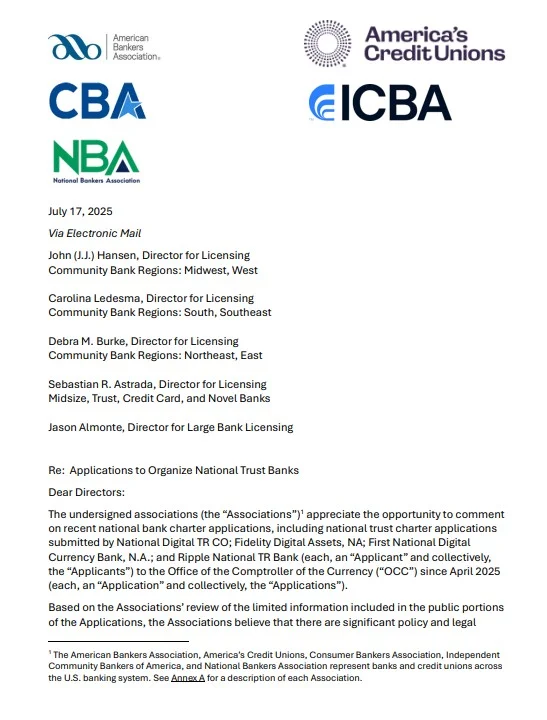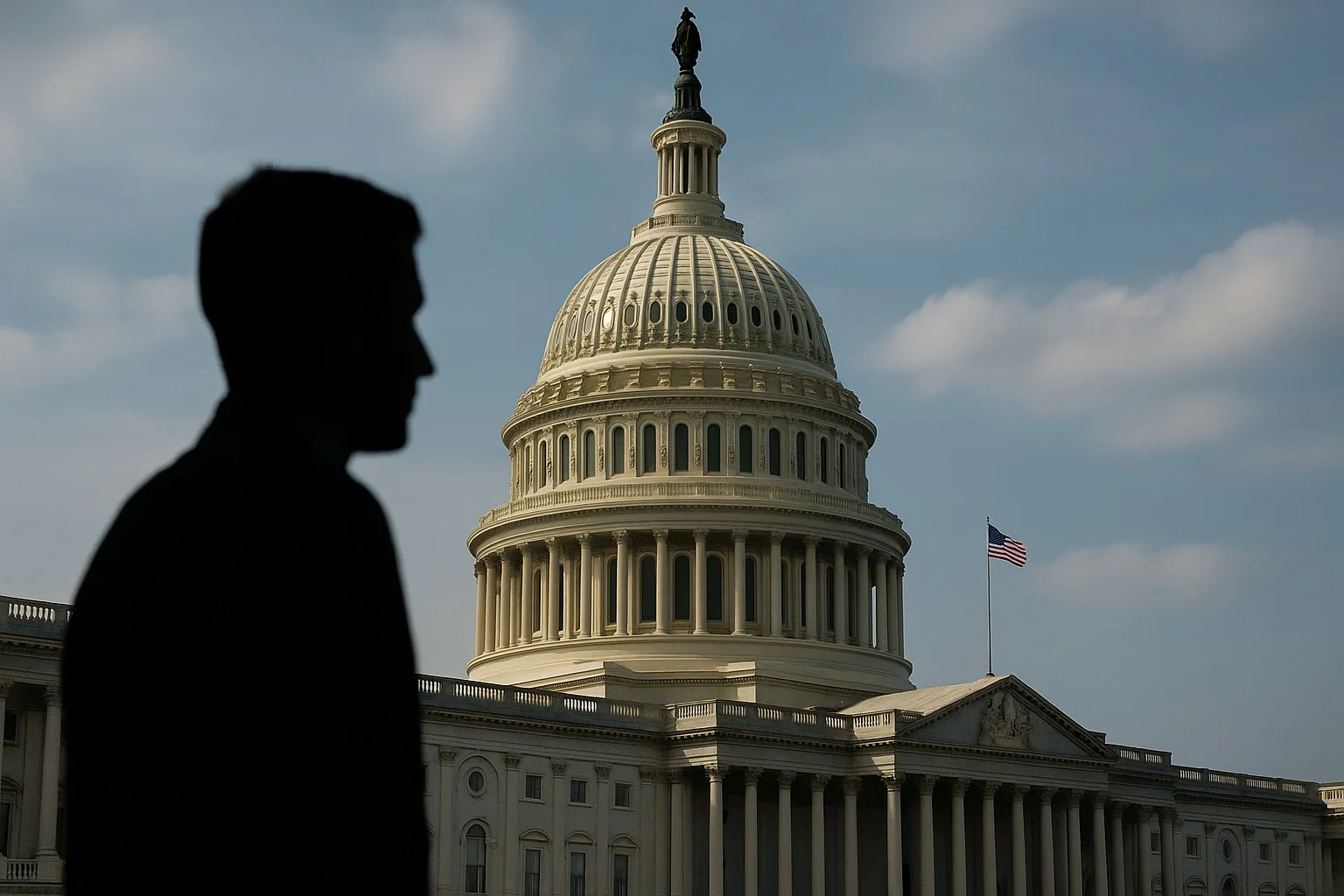The United States' largest banking groups have called on the country's financial regulator, the Office of the Comptroller of the Currency (OCC), to suspend applications for national bank licenses by crypto companies like Ripple and Circle. The reasoning is clear: These applications could trigger a "fundamental policy change" in the current legal framework.
Traditional banks oppose crypto bank licenses
A joint letter signed by five major organizations -the American Bankers Association, Credit Unions of America, the Consumer Bankers Association, and the Independent Community Bankers Association- emphasized that the OCC should provide more information to the public before granting such licenses. The letter alleges that the business models offered by Ripple and Circle do not meet the "custodial activities" that national trust banks are legally required to perform.

In particular, Circle's plans to manage USDC reserves and institutional crypto asset custody, as well as Ripple's applications to comply with regulation for its new stablecoin services, have raised serious concerns in the traditional banking sector. Concerns about a potential "back door" in the banking system
Another noteworthy point in the letter is that granting bank licenses to crypto companies in areas where they have no or secondary trust activity could contradict the OCC's past practices. It warns that if this is allowed, other companies could follow suit and obtain "de facto" bank licenses, creating regulatory gaps.
It states that such a move could lead to the emergence of a new breed of financial actors, with the same privileges as traditional banks but operating under significantly less capital requirements and regulation.
Caitlin Long and Paradigm react: "They're afraid of competition"
Caitlin Long, founder of crypto-focused Custodia Bank, interpreted the developments as "clear resistance from the banking lobby" and suggested that the matter would likely be taken to the courts. According to Long, if licensing comes with such a low capital requirement, why shouldn't traditional banks also transform into trust companies and continue their operations? Paradigm's public policy director, Alexander Grieve, made a similar comment: "Banks and credit unions rarely see eye to eye on anything. But when real competition comes from the crypto sector, they manage to unite." Meanwhile, according to attorney Logan Payne of the law firm Winston & Strawn, the recently passed GENIUS law has increased the incentive for stablecoin issuers to seek bank licenses. While the new law only allows for stablecoin issuance, these companies have a much broader scope of operations in real life. Obtaining a national trust bank license could make it easier for them to pursue these activities.




